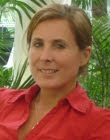A version of this post was originally written for Contemporary Christianity.
In 2012 a furore erupted across
South Africa following the public exhibition of a painting by a ‘white’ South
African artist, Brett Murray. Expressing a strand of public perception relating
to the numerous scandals surrounding Jacob Zuma, the current President of South
Africa, it depicts the President in a Lenin-like fashion with his genitals
exposed. As well as the painting being vandalised shortly after it was
displayed, some even called for the artist to be stoned to death for the way he
had insulted the President. A
fascinating debate followed raising the question of why something one might
have thought as an acceptable form of political commentary within the context
of a democracy could provoke such an impassioned response.
Due to the artist being ‘white’,
and bearing in mind South Africa’s history of racism and oppression, many have
interpreted the painting as racist. However, to interpret it in this way is
insufficient as it does not account for the way in which the conflicting views
crossed racial boundaries, as indeed many ‘whites’ also took exception to it.
Pointing to different systems of meaning-making (worldviews) at play, I would
argue the furore was the result of an unintended but volatile clash of values:
freedom of speech versus the right to dignity and respect, fuelled by an
unresolved Apartheid past. However, such a clash of values is not limited to
South Africa. It can be seen in the
lethal violence that ensued following the printing of cartoons by the French
magazine, Charlie Hebdo depicting the Prophet Mohammed. Like the painting of
Zuma there are those that will see the cartoons as providing legitimate
political commentary while others will interpret it as a form of Islamophobia.
These illustrations bring into
the question the relationship between political correctness and the right to
free speech. However, they also raise a number of deeper questions that need to
be probed. For example, they raise the question of identity and how different
groups interpret and make sense of the world around them. They also raise the
question of social values and how groups prioritise certain values over others.
They necessitate both asking what happens when competing values and ways of
interpreting reality collide and thinking about the impact this might have on
building peaceful societies.
These questions challenge
Western liberal thought that is largely driven by an individualist worldview
and that promotes values such as gender equality, personal autonomy and freedom
of speech. While other societies may support such values they can be
prioritised in different ways. In collective cultures it is the respect of
elders and leaders and maintaining the honour and dignity of a group that is
given priority. Consequently, to draw Zuma or the prophet Mohamed in such ways
serves as a complete affront to the culture. However, what is important to
understand is that our values speak to our sense of identity and feeling safe
in the world. Subsequently, a perceived threat to these values, coupled with
histories of inequality and oppression, can solicit a violent response and
contribute to intergroup conflict as they act to destabilise ones sense of
well-being in the world – as illustrated with the painting of Zuma and the
drawings of the prophet Mohamed.
So how do we respond to this?
Should the value of free speech trump the right to dignity and respect or even
the right to religious freedom? To what extent should it be curbed by political
correctness? If we defend our value for free speech (or other western values
for that matter) are we not imposing what we perceive as the superiority of our
worldview over the ‘other’? Is that not a form of colonialism – cultural
colonialism in this case? Moreover, it raises the extent to which we assume the
‘other’ thinks like us. In the interests of building peaceful society, perhaps we
need to give the ‘other’ a little more room to exist, acknowledge
and accept that perhaps there is more than one truth so that we can open up the
space for dialogue that promotes acceptance and transformation.
